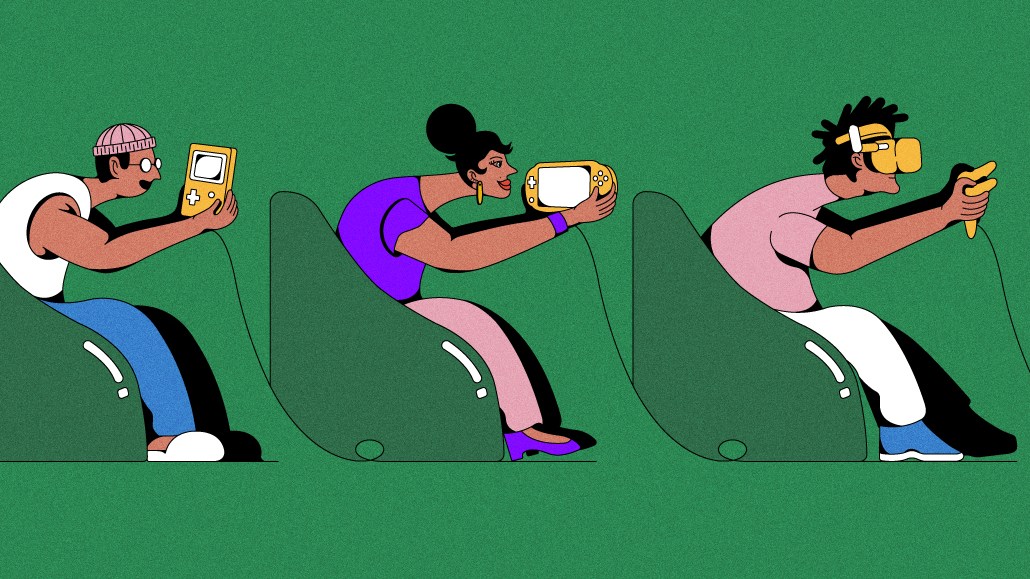Secure your place at the Digiday Media Buying Summit in Nashville, March 2-4
To appeal to Gen Z, Coca-Cola took over the Sphere and ‘co-created’ a futuristic flavor with AI

Over the last week, Coca-Cola has taken over the MSG Sphere in Las Vegas with visual predictions of what the year 3000 might look like projected on the massive dome. The Sphere takeover is just one element of the brand’s latest effort to appeal to Gen Z that also includes new limited-edition flavors like Coca-Cola Y3000 Zero Sugar, which the brand has dubbed its “first futuristic flavor co-created with human and artificial intelligence.”
“The intent is to better connect with Gen Z and younger,” Selman Careaga, president of the global Coca-Cola category, said of the company’s Coca-Cola Creations platform, the strategy behind the Y3000 flavor as well seven previous limited-edition flavors. “Whenever we put out creations, we get twice the engagement compared to other content we put out there. Sixty-five percent of people who engage with creations are new to the franchise and that makes us believe in the platform moving forward.”
The beverage behemoth has aimed to not only release limited-edition flavors to appeal to Gen Z consumers, but to also do so in a way that’s more participatory with the goal of creating a “two-way experience with Coke rather than just us talking to people,” explained Oana Vlad, senior director of global strategy at Coca-Cola. Previous Coca-Cola Creations have used games like “Fortnight” and “League of Legends” to introduce new flavors, among other efforts.
For the new Y3000 flavor, Coca-Cola took over the Sphere for a week and introduced an AI-powered camera experience, the Y300 AI Cam, to get people to take photos and use the technology to alter them to be a vision of what the future may look like. The company also worked with artists like the Jonas Brothers and Marshmello as well as fashion brand Ambush to create the year 3000 experience to hopefully appeal to younger consumers and get them to want to try the new flavor.
As for the human and AI co-creation, Coca-Cola asked people to describe in their own words their visions of an optimistic future, noted Vlad, which were then fed as prompts into AI to create the design, look and feel of the Y3000 flavor. “We used AI as a tool to basically give a taste and look to the future, and even the Y3000 can,” said Vlad. “It was about tapping into people’s passions and dreams of the future.”
It’s unclear how much Coca-Cola spent on this effort or previous Coca-Cola Creations marketing, as the brand declined to share specific spending figures. Careaga did note that in 2019 the company was spending roughly 30% of its overall media mix on digital and that it will close this year with more than 60% of its ad budget in digital, as the company worked to appeal to Gen Z with more digital-only experiences.
From January to August this year, Coca-Cola spent $99.5 million on advertising, down from $104 million during the same time period in 2022, according to Vivvix and Pathmatics data, which also found that during all of 2022 the brand spent $240 million on advertising.
Coca-Cola’s strategy of using the Sphere, a vision of the future, artist partnerships and AI to appeal to Gen Z with a new flavor “feels very stunty,” Eunice Shin, partner at Prophet, a growth strategy firm, said when asked about the effort. “What Coke is trying to do is throw everything new out there, put it together, shake it up and get attention. The challenge of that with Gen Z is that you could do the stunt, it could be interesting and you only get their attention for six-seconds.”
The challenge for Coca-Cola — and any marketer looking to capture the attention of Gen Z — will be to find a way to get their attention for longer than a few seconds, noted Shin. “Can this create a moment where it draws attention? Sure. But what is the authenticity piece here? There’s always the authenticity filter with Gen Z. It has to be more than a stunt,” Shin said.
More in Marketing

Future of Marketing Briefing: AI’s branding problem is why marketers keep it off the label
The reputational downside is clearer than the branding upside, which makes discretion the safer strategy.

While holdcos build ‘death stars of content,’ indie creative agencies take alternative routes
Indie agencies and the holding company sector were once bound together. The Super Bowl and WPP’s latest remodeling plans show they’re heading in different directions.

How Boll & Branch leverages AI for operational and creative tasks
Boll & Branch first and foremost uses AI to manage workflows across teams.







